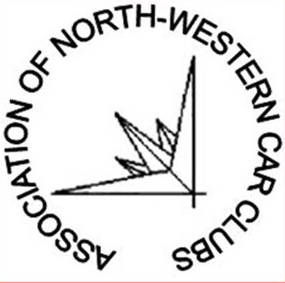Quality Assurance
In order to ensure fairness and breadth of assessment, no more than five signatures will be allowed from any one individual.
It is preferable that signatures only be gained from BRMC examining grade members, thus protecting standards. In practice however this is unlikely to prove practical, due to the relatively small number of active examining grade members. As a compromise at least fifty percent of the signatures gained must be from a suitable BRMC examining grade marshal. Within the above, the following rules will apply:
- Stage Rally Marshal
Any BRMC Examining Stage Rally Marshal, the Stage Commander, or his/her Deputy. - Stage Timekeeper
Any BRMC Examining Stage Rally Marshal, the Stage Commander, or his/her Deputy. - Stage Operations
Any BRMC Examining Stage Rally Marshal, or Stage Commander. - Road Rally Marshal
Any BRMC Examining Road Rally Marshal, Chief Marshal, Clerk of the Course, or Deputy Clerk of the Course.
Furthermore, with regard to training sessions, signatures will be valid from the session organiser, provided that the training session is being run by a MSA accredited trainer. For the purposes of radio training, an MSA accredited Radio Controller will also be deemed to be a valid signatory.
Signatures may NOT normally be given for duties carried out outside the direct control of the signatory. The following exceptions may apply:
- Stage Rally Marshal
The three In-Stage Duty signatures, the Incident signature and the Spectator Control signature may be given by the Stage Commander, or his/her Deputy, provided that they are satisfied that the duty has been performed to the required standard. - Timekeeping
Up to four signatures from an event Senior Time Control Official may be accepted. - Stage Operations
The Deputy Stage Commander, Sector Marshal, two Stage Arrowing or Stage Set Up, two Incident, and the Spectator Control signature may be given by the Stage Commander, provided that they are satisfied that the duty has been performed to the required standard.
It is recognised that there are problems relating to the issue of grading signatures for multi-use and road rally events, where members may perform several duties in the course of one day. Nevertheless, under the scheme only one grading signature may be gained on any one day, irrespective of the number of duties carried out.
Exemptions
MSA Safety and Medical Frequency Radio License Holders
Due to the lack of any suitable qualifying criteria for the issue of a MSA Safety and Medical Frequency radio license, current license holders will NOT be exempted from any radio signatures.
Should the MSA introduce a qualifying requirement for the issue of the licenses, then this condition will be re-assessed with a view to hoping to be able to grant exemption.
MSA Rally Timekeeper License Holders
The same set of criteria apply to holders of an MSA Rally Timekeepers license, who might be expected to have sufficient experience to exempt them from the practical aspects of the timekeeping signatures.
Unfortunately the Club considers that the current method of assessment for the granting of licenses does not at this stage reach the desired level. Hence no exemption will currently be given.
BMMC Incident Graded Marshals
BMMC Incident graded marshals will be granted full exemption from the Fire Training signatures for all grades.
BRMC and MSA Accredited Training Sessions
Members grading concurrently for separate grades may receive signatures on all relevant cards for the same training session, up to a maximum of three different disciplines per day.
(For non-BRMC marshals who subsequently join BRMC they should present any MSA Accredited Training Certificates to the BRMC Regional Rally Rep for appropriate exemptions to be considered).
Specialist
BRMC Rally Specialist
(Brown Badge/Grey Dymo)
The Specialist grade will be awarded by the BRMC National Committee to club members whose expertise in a specialised area, related to but not directly part of rally marshalling, warrants award of the grade. Determination of suitability will be at the discretion of the BRMC National Committee.
This grade is primarily aimed at club members with medical, scrutineering etc. qualifications, but it is not necessarily restricted to that list.
Members may apply to the BRMC National Grading Administrator for this grade, but will be required to demonstrate a general knowledge of rallying to the satisfaction of the BRMC National Committee, and to attend two BRMC run or accredited training sessions, one for stage operations, and one for timekeeping.
Signatures
Appendix A - Definition of BRMC Grading Requirements
The definitions below are intended as guidelines to be followed for the issue of grading signatures. If a marshal fails to meet the required level of competence, whether through their own fault or not, a signature should NOT be given.
Arrival or Start Time Control (2)
The marshal shall carry out the duties of an Arrival or Start Timekeeper (twice). Suitable duties include the operation of the clock's), performing the start countdown procedure, recording of information on the check sheet's), or the entering of the information into competitor's road books. Mere use of the start flag shall NOT be counted as valid.
Flying Finish or Stopline Time Control (2)
The marshal shall carry out the duties of a Flying Finish or Stop Timekeeper (twice). Suitable duties shall include the operation of the clock's), the recording of information on the check sheets, indication of a competitor crossing the flying finish line using whatever equipment is available, or the entering of information into competitor's road books.
Spectator Control
The marshal shall perform the duty of spectator control marshal, including demonstrating that they have an understanding of spectator safety considerations, and that they can handle themselves in such a fashion as to engender co-operation from spectators, rather than confrontation. Multi-use events shall not generally be suitable for the issue of signatures for this duty.
Incident
The marshal shall demonstrate, in a 'live' incident, that they can handle themselves in such a manner as to make safe a vehicle that has been involved in an incident requiring outside assistance, i.e. marshals. This may include assisting a competitor to regain the stage and continue, or to secure an accident damaged vehicle. The level of involvement required is not intended to be very high, e.g. calling rescue vehicles etc., but merely push starting a stalled vehicle in an area of relatively little risk is not considered sufficient for the issue of a signature
In-Stage Duty (3)
The marshal shall attend sufficient events to gain three signatures for in-stage duties, e.g. block car, junction crew etc. This requirement has been introduced in recognition of the large number of members who join the club with initially little more than general in-stage experience, and is designed to allow them to settle in.
Radio Training
The marshal shall attend a MSA recognized Radio Training session, and shall satisfy a MSA accredited Radio Controller that they have a basic appreciation of MSA Safety and Medical Frequency radio procedures.
It should be noted that the latter approval could be granted outside of the immediate view of the controller, but obviously within their hearing, and hence within their competence to assess.
Fire Training
The marshal shall attend a MSA accredited Fire Training session. A signature may be obtained at the same time as one being issued for a BMMC or MSA grade.
Trainee Rally Training
The marshal shall attend an MSA accredited Trainee Rally Training session.
Arrival Time Control (2)
The marshal shall carry out the duties of an Arrival Timekeeper (twice). This should involve use of clocks on one occasion, and check sheets/documentation on another.
Where relevant marshal should demonstrate that they are conversant with arrival control and parc ferme procedures, and can correctly prepare road book entries ready for the start timekeepers.
Start Time Control (2)
The marshal shall carry out the duties of a Start Timekeeper (twice). This will be expected to involve use of clocks on one occasion, and check sheets/documentation on the other. Specifically the marshal should demonstrate that they are familiar with start control procedures, including the operation of the previous car numbering system for road books, and also the alternate method of issuing 'bingo tickets'.
Flying Finish Time Control (2)
The marshal shall carry out the duties of a Flying Finish Timekeeper (twice), one of which must be on a multi-use event. This will be expected to involve the use of clocks on one occasion, and check sheets/documentation on the other. Specifically they should demonstrate that they are able to function both with and without audio communication with the Stop Line. The marshal should be able to explain the procedure for timing should all communication with the stop line be lost.
Stop Time Control (2)
The marshal shall carry out the duties of a Stop Line Timekeeper (twice), one of which will be on a multi-use event. This will be expected to involve the use of clocks on one occasion, and check sheets/documentation on the other. Specifically the marshal should demonstrate that they are able to function both with and without audio communication with the Flying Finish.
Timing Control (Open)(2)
The marshal shall carry out the duty of Timekeeper (twice), once on an event of National 'B' status or below, and once on an event of National 'A' or above. Any timekeeping duty will be counted as valid.
Fire Training
A signature may be obtained at the same session as one being issued for a BMMC or MSA grade.
Timing Training
The marshal shall attend an MSA accredited Timekeeping training session.
Deputy Stage Commander
The marshal shall fulfil the role of Deputy Stage Commander to the satisfaction of the Stage Commander, or other BRMC nominated observer. The marshal shall be expected to observe and learn such that in the future they may be able to take on the role of Stage Commander. This is designed to be mainly an instructional requirement. As such, it is strongly recommended that a suitable BRMC Examining marshal should 'shadow' the candidate.
Sector Marshal
The marshal shall demonstrate on a 'live' stage that they are capable of fulfilling the duties of a senior in-stage marshal. On smaller events this may take the form of controlling other marshals at adjacent junctions, on more major events this will probably be in the form of a sector marshal's duties. Specifically the marshal shall demonstrate ability to lead a team, whilst also retaining an awareness of safety considerations. This is fundamentally a man management requirement.
Stage Arrowing or Stage Setup (2)
The marshal shall demonstrate (twice) on a 'live' stage, that they are capable of setting up and arrowing a stage, normally to the satisfaction of the Stage Commander. As well as the normal arrowing procedure, the marshal should familiarize his/herself with the use of stage hazard boards and tape, time control boards, and most importantly, the placement of spectator safety notices.
Incident (2)
The marshal shall demonstrate (twice) in a 'live' incident that they can handle themselves in such a manner as to make safe a vehicle that has been involved in an incident requiring outside assistance, i.e. marshals. This may include assisting a vehicle to regain the stage and continue, or to secure an accident damaged vehicle.
The level of involvement required is intended to be higher than that required for the Stage Rally Marshal grade, although specific guidance cannot be given since, fortunately, incidents cannot be manufactured by design. Ideally, at least one of these signatures should have required the passing of accurate information by radio, either directly or via a dedicated radio operator.
Spectator Control (2)
The marshal shall perform the duty of Spectator Control Marshal (twice), normally on a spectator stage, including demonstrating an understanding of spectator safety considerations, and that they can handle themselves in such a fashion as to engender co-operation from large numbers of spectators, rather than confrontation. In the current climate where spectators in general are officially not encouraged, multi-use events shall NOT be suitable for the issue of signatures for this duty.
Fire Training
The marshal shall attend a MSA accredited Fire Training session. A signature may be obtained at the same session as one being issued for a BMMC or MSA grade.
Timing Training
The marshal shall attend a MSA accredited Timekeeping training session.
Radio Training
The marshal shall attend a MSA recognised Radio Training session, and shall satisfy a MSA accredited Radio Controller that they are able to use an MSA and Medical Frequency radio to the required standard. As such a marshal should be able to demonstrate that they are familiar with the procedures to be followed in the use of such equipment, including stage stoppages, and making emergency calls.
It should be noted that the latter approval could be granted outside of the immediate view of the controller, obviously within their hearing, and hence within their competence to assess.
Stage Operations Training
The marshal shall attend a MSA accredited Senior Marshals / Operations, or equivalent, training session.
It should be noted that the latter approval could be granted outside of the immediate view of the controller, obviously within their hearing, and hence within their competence to assess.
Passage Control (2)
The marshal shall carry out the duties of a Passage Control or Proof of Passage Marshal (twice). This will not include the use of clocks, but will expose the marshal to map and noise checks, and other procedures carried out on the route. They should demonstrate that they can correctly fill out time cards and check sheets, and that they can amend them correctly.
Time Control (Minute)(4)
The members shall carry out the duties of a Time Control Marshal measuring time to an accuracy of one minute at each of the following controls (four times).
- Neutral
- Regularity
- Standard
- Transport
The marshal should demonstrate the ability to interpret correctly timing device in use, and that they can correctly fill out time cards and check sheets, and that they can amend them correctly.
Time Control (Second)
The marshal shall carry out the duties of a Time Control Marshal measuring time to an accuracy of one second at either of the following controls.
- Regularity
- Standard
The marshal should demonstrate the ability to interpret correctly the timing device in use, and that they can correctly fill out time cards and check sheets, and that they can amend them correctly.
Public Relations For Route
The marshal shall carry out the duties of assisting the organising club's), in accordance with the publicised guidelines as laid down in the MSA Year Book (Blue Book), in the public relations work necessary for each type of route section. The marshal should demonstrate that they can correctly fill out PR record sheets and information sheets (for letter box drops) to the satisfaction of the Clerk of the Course and CTRA Route Liaison Officer. They must also show that they can deal with the public in a diplomatic and courteous manner at all times.
Other Duty (Open) (2)
The marshal shall carry out any of the following Judge of Fact duties (twice).
- Failure to Stop at a Standing Give Way, Halt or Stop Line
- Unauthorised Use of Auxiliary Lamps
- Violation of Out of Bounds (Black Spot) Area
- Quiet Zone Infringements
It is recommended that one occasion should be as a 'Give Way' Judge of Fact, and the other in any three of the remaining capacities.
Fire Training
The marshal shall attend a MSA accredited Fire Training session. A signature may be obtained at the same session as one being issued for a BMMC or MSA grade.
Trainee Road Rally Training
The marshal shall attend a Trainee Road Rally training session, by a BRMC recognised road rally trainer. The content of the session shall be as determined by the BRMC, but shall be aimed at ensuring a basic understanding of all matters relating to road rally marshalling.
Senior Officials
BRMC Senior Official
(Gold Badge/Brown Dymo)
and
BRMC Examining Senior Official
(Gold Badge/Brown Dymo 'X')
The Senior Officials grade will be awarded solely at the discretion of the BRMC National Committee. Club members may NOT apply for this grade. Nominations for this grade may be made to the BRMC National Grading Administrator by members of the BRMC National Committee, BMMC Regional Committees or BMMC Council.
The grade will cater for ACTIVE senior rally officials whom the Club would welcome as members, but for whom the grading scheme is inappropriate, e.g. Clerks of Course, Chief Timekeepers, Rally Managers etc.
On recommendation for this grade, subject to meeting the above criteria, the National Grading Administrator will then send a questionnaire to two existing Senior Official or examining grade members of the BRMC's choice. These questionnaires, when completed, will be examined by the BRMC National Committee. After due consideration, upgrading to Senior Official will be confirmed or refused. If upgrading is refused the person will be provided with appropriate feedback, though the matter will not be reconsidered within twelve months.

















